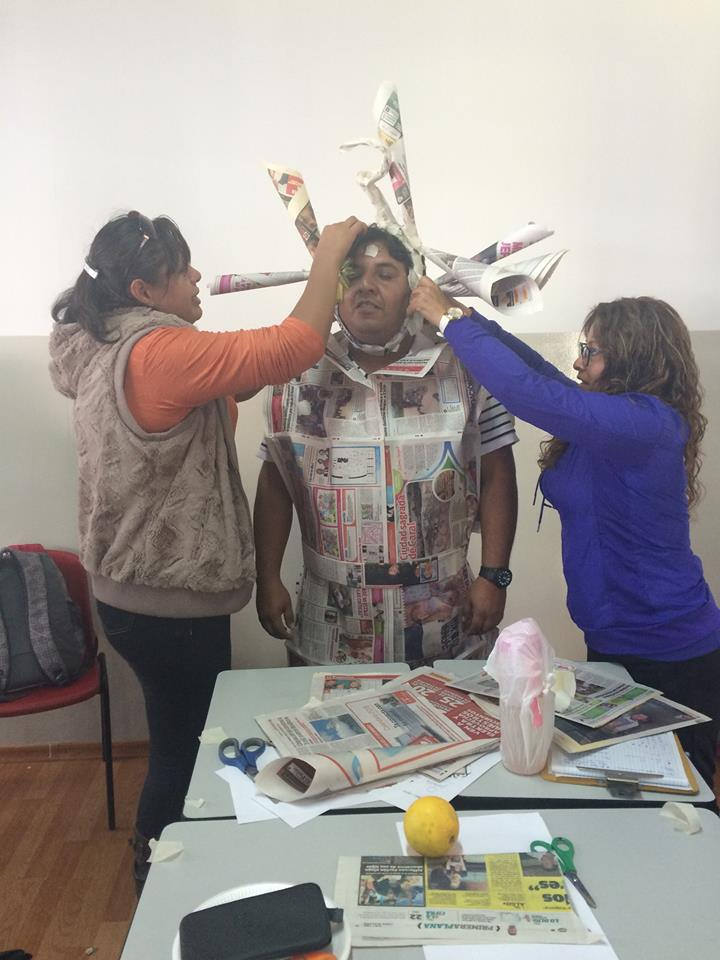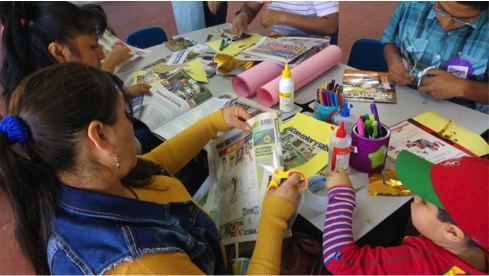
When: February 5-7, 2016
Where: Arequipa, Perú
Institution: Futura Schools
Facilitators: Doris Sommer, and Javier Suárez
Futura Schools es una red privada de colegios cuyo objetivo es desarrollar una educación escolar de alta calidad con énfasis en ciencias y tecnología, centrada en el alumno, sus habilidades y valores personales. La fundación es un referente nacional en Perú gracias a su nivel educativo y a su aporte de inclusión social y cultural, formando ciudadanos líderes, competitivos, innovadores y solidarios. En concordancia con ello, se realizó un convenio con Cultural Agents Inc., y dos facilitadores (Doris Sommer y Javier Suárez) lideraron un taller de Pre-Textos en la ciudad de Arequipa Perú, en la sede José Luis Bustamente y Riveros.

En febrero de 2016, durante tres días de manera intensiva se desarrolló un taller de Pre-Textos para docentes de diferentes asignaturas y niveles de la escuela José Luis Bustamente y Riveros en Arequipa. Luego de taller se designó a una Tejedora quien acompañó al grupo de 25 docentes durante todo su entrenamiento como facilitador de Pre-Textos
Cuando cada uno de ellos cumplió las 15 horas de “Pre-Textos”, se certificó como facilitador de Pre-Textos y ahora Pre-Textos es parte la visión pedagógica de la escuela, centrándose en la innovación, creatividad y comportamiento cívico. Cada facilitador compartió las reflexiones, destacando como Pre-Textos se adaptó fácilmente al aula, como los estudiantes lo acogieron positivamente y cómo cambió el ambiente escolar en torno a esta nueva forma de enseñanza.
“Last February, I participated as a facilitator in a Pre-Texts workshop at Futura Schools (Arequipa, Peru). The workshop lasted for five sessions over three days, and they were really intense. We used Pre-Texts to work with the first chapter of Carl Sagan’s Cosmos (1980). This text is about the vastness and mystery of our universe and it has a language rich in scientific vocabulary and information. It is not an easy text but with Pre-Texts’ techniques the participants could interpret it through the work with materials (cardboard books), theatre (Augusto Boal) and even fashion design. They played with the text and what I think is great about this experience is the way a text can find infinite ways to be expressed depending on each person’s interests (“irse por las ramas”). There are no limits for a text and it can become a song, a human statute, a class activity, etc.
Especially interesting for me was the activity (taken from Boal’s Games for Actors and Non Actors) which consisted in creating a tragedy in groups and then representing it. After the representation, one person volunteers to change the end of the tragedy showing that fate, destiny, can be transformed and that nothing, not even tragedy, is forever. I consider this activity as a powerful technique to empower teachers, students in schools, especially in high-risk neighborhoods. Last but not least, this experience was incredibly enriching for me not only because I always learn something new with Pre-Texts but also because it was in my country, in Peru. Having the possibility of sharing what I am doing at Harvard there was an experience that I will never forget.”